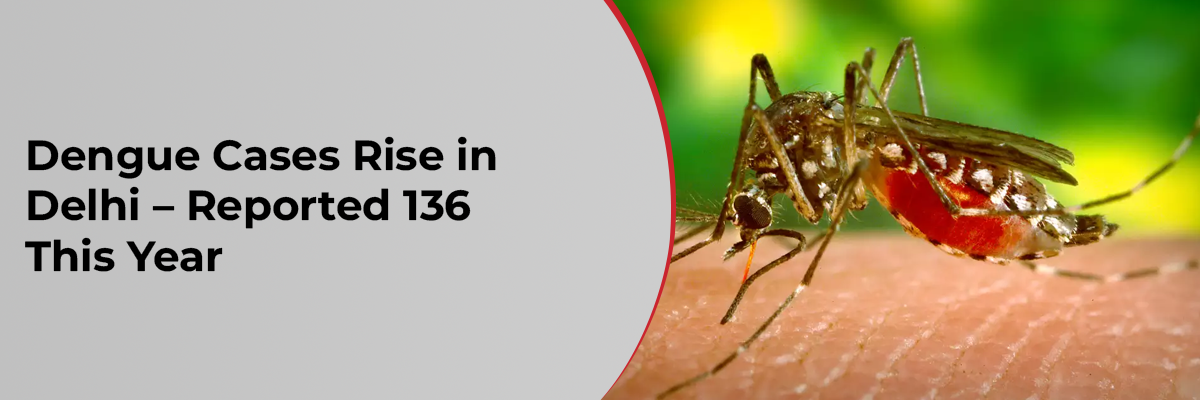
 IJCP Editorial Team
IJCP Editorial Team
Dengue Cases Rise in Delhi – Reported 136 This Year
Dengue – a viral mosquito-borne disease, is transmitted to humans by the Aedes aegypti mosquito bites and can reach epidemic proportions during monsoons.
This year, Delhi has already recorded 136 Dengue cases so far. The viral infection (DENV) is highly contagious; the symptoms include – high fever, severe headaches, joint and muscle pain, rash, and in severe cases, hemorrhagic manifestations.
Warning signs of severe dengue are – abdominal pain and swelling, vomiting blood, bleeding from the nose or gums, and altered consciousness. Early diagnosis and supportive care are essential as no specific antiviral therapies are available.
Treatment involves hydration and symptom management; recovery may take several weeks. Preventive measures include:
• Eliminating mosquito breeding sites.
• Using mosquito repellents.
• Wearing protective clothing.
• Ensuring proper door and window screens.
Following these precautions and seeking timely medical advice can help avoid complications and hospitalization.

IJCP Editorial Team
Comprising seasoned professionals and experts from the medical field, the IJCP editorial team is dedicated to delivering timely and accurate content and thriving to provide attention-grabbing information for the readers. What sets them apart are their diverse expertise, spanning academia, research, and clinical practice, and their dedication to upholding the highest standards of quality and integrity. With a wealth of experience and a commitment to excellence, the IJCP editorial team strives to provide valuable perspectives, the latest trends, and in-depth analyses across various medical domains, all in a way that keeps you interested and engaged.










.jpg)








.jpg)


Please login to comment on this article